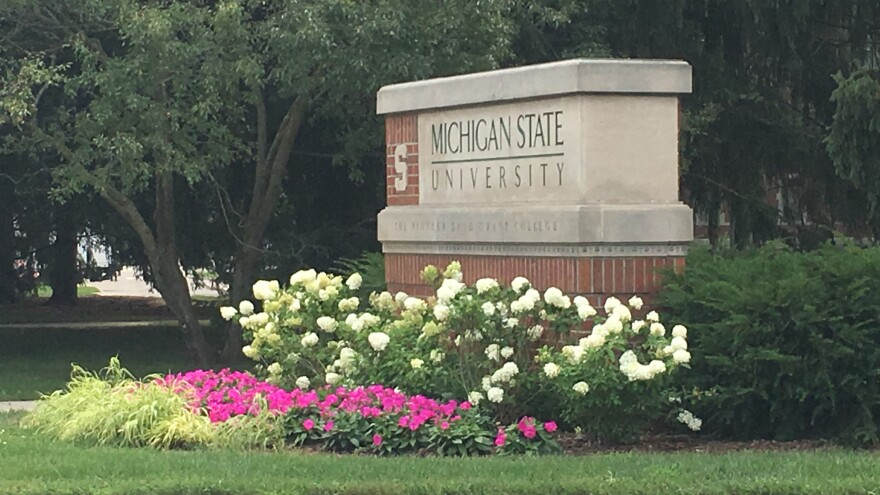One of the most concerning aspects of the coronavirus is that many people who’ve contracted it may be asymptomatic. Officials say more testing is needed to rule out as many negative cases as possible. But those tests are in short supply. Now, researchers at Michigan State University are working on a testing protocol that doesn’t use those hard to find materials.
Dr. Jack Lipton
We were reading a paper that was coming out of China from the University of Wuhan, which uses a particular technology called Droplet Digital PCR, which is a machine we happen to have in the laboratory. They’re using this particular machine to detect coronavirus in patients in Wuhan, China. So we thought, hey, maybe we could do this. I talked to my colleagues, Caryl Sortwell and Joe Patterson, who were both faculty in our department, along with my lab manager, Allyson Strauss. And together we, in about a week, got together the reagents to do the test and validated the test according to the CDC process.
Kevin Lavery
What’s a “reagent?” That sounds like it's very critical to the process.
Lipton
A reagent would be any chemical that we'd be using in the process. One of the problems that we have right now are the chemicals that are used to take a sample from a patient. Let’s say you get a nasal swab. We need to take that material and extract the viral genetic material out of that sample to see if we can detect it in our system. The reagents that are used, which are these chemicals, are part of those kits. So if you hear about kits that are going out to sample patients, that particular set of chemicals that are involved in the extraction process are in short supply. So, we have worked with some older techniques that people used to use before we had convenient kits for this kind of thing. Those particular chemicals or reagents are not in short supply. We can get those readily.
Lavery
Your team is claiming that the new testing method is 500 times more sensitive than the standard coronavirus test, and it also reduces the number of false negative test results that can incorrectly diagnose people as being free from the disease. How does that physically happen?
Lipton
When someone has a very low viral load, they may show up as negative on the standard CDC test. So, we’re amplifying genetic material, and if that material doesn't amplify to a certain level, then the test is considered negative on the standard test since we can see it at a lower level. We can say that someone may still be shedding the virus when the regular test says that they're clear.
Lavery
That's amazing to me. I'm astounded that other groups have not come upon this the way you and your team have.
Lipton
Maybe it's because we're old, and we had to use things that were around before kits were available. I think a lot of people can use this. There are thousands of labs around the country that can do this relatively easily.
Lavery
You've recently co-authored an article in the Wall Street Journal that explains the situation about academic research labs conducting studies are not the same thing as clinical diagnostics. So as you alluded to, there's some red tape involved; regulatory issues that need to be cleared up to allow laboratories like that at Michigan State University to move forward with this test and to make this more available across the country.
Lipton
Absolutely. So, there are a set of rules which are under the acronym CLIA (Clinical Laboratory Improvement Amendments). These rules are designed to make sure that laboratories that are offering clinical diagnostic tests are doing so in a very consistent, robust and reproducible way. But in order for any laboratory like ours (an academic research laboratory) to be able to offer a clinical diagnostic test, we would have to be certified under that CLIA rule. It's a really onerous process. We’re calling for the FDA and the CDC to work on lifting that restriction and allow laboratories like ours, who can demonstrate that they have a working CDC and FDA approved coronavirus test, to be able to offer up their services to provide clinical diagnostic services.
Lavery
This really sounds like a game changer. As you say, it's kind of a matter of getting this through the bureaucracy.
Lipton
Exactly. If we can help people understand the importance of what we're talking about, particularly people that are in decision making roles in the government, then we can work on making it practical for now while still maintaining safety for patients and the high quality of testing that everyone expects.






